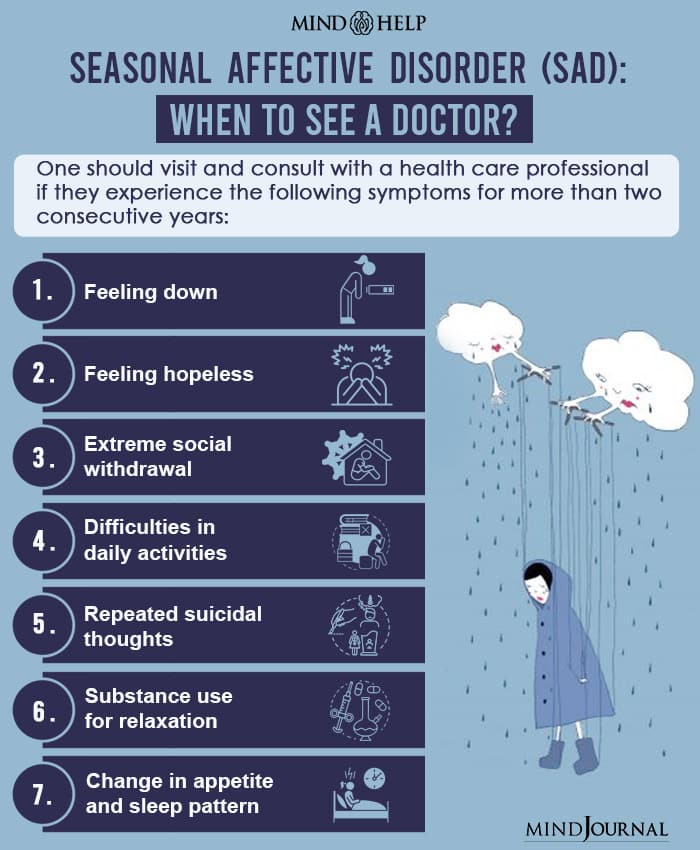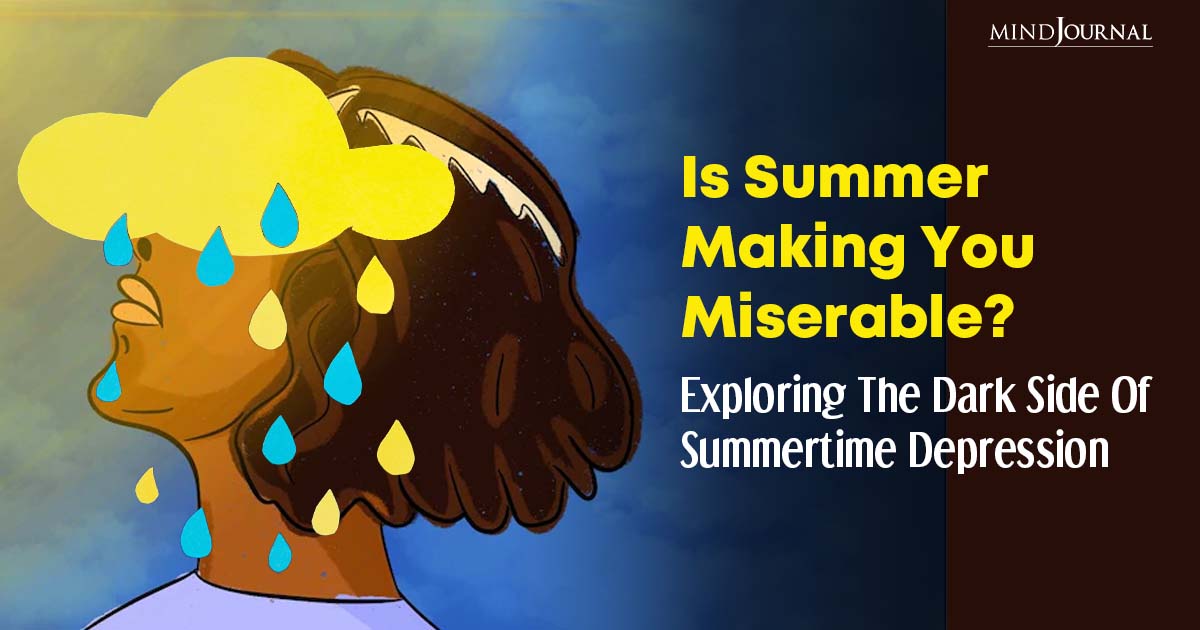Do you often find yourself feeling down or unhappy during the summer months? Does the arrival of summer bring about feelings of sadness instead of joy? If so, you might be experiencing what is known as summertime depression.
Unlike the common association of summer with happiness and outdoor fun, some individuals struggle with their mental health during this season, and it’s important to recognize the possibility of summertime depression.
Read more here: How To Get Better From Depression (Without Medication Or Therapy)
What Is Summer Seasonal Affective Disorders?
Summertime depression, also known as summer seasonal affective disorder (SAD), is a lesser-known form of seasonal depression that can significantly impact individuals’ mental health during the warmer months.

While winter SAD has garnered more attention, summer depression poses its own unique challenges.
This news article explores the causes, symptoms, and risks associated with summer SAD, as well as the influence of climate change on mental health. We also provide practical strategies to cope with summertime depression.
Read more here: Surviving the Dark Days: 6 Effective Strategies for Combating Seasonal Affective Disorder (SAD)
Symptoms Of Summer Depression
Summer seasonal affective disorder (SAD) presents distinct symptoms of depression that differentiate it from its winter counterpart.
While both types are marked by sad moods and reduced feelings of pleasure, individuals with summer depression tend to experience insomnia, decreased appetite, and increased agitation.
These symptoms of summertime depression can contribute to a higher risk of suicide during the summer months.
The risk of suicide due to summer depression underscores the critical need to address and manage the challenges faced by individuals experiencing summertime seasonal affective disorder.
Studies have shown that suicidal behavior peaks in the late spring and early summer, coinciding with the prevalence of summer SAD.
Read more here: Seasonal Affective Disorder (SAD): How Seasons Can Affect Our Mood And Life
What Are The Probable Causes Of Summertime Depression?
Heat, humidity, and pollen are believed to be major causes of summertime depression. Many individuals with summer SAD attribute their sadness to the constant heat, which can be overwhelming and draining.
Bright sunlight, while generally uplifting for most people, can have a negative impact on individuals with summer depression, cutting through them “like a knife,” as described by some sufferers.
Additionally, high pollen counts during the spring and summer months may worsen symptoms, as allergies can elicit an immune response and inflammatory processes that contribute to depression.
Climate Change Influencing Mental Health: The Impact On Summer SAD
Is climate change influencing mental health? Well, the answer is yes. As climate change continues to affect our planet, it also has implications for mental health.
Rising temperatures associated with global warming have been linked to increased mental health problems.
Heatwaves, which are becoming more frequent and intense, have been associated with worse mental health outcomes.
Studies have shown a correlation between higher temperatures and increased mental health emergency room visits, suicides, and a decline in self-reported mental well-being.
With the potential for more extreme heat events and longer, hotter summers due to climate change, the prevalence and severity of summer SAD may continue to rise.
How To Cope With Summer SAD: Strategies For Relief
If you find yourself struggling with summertime depression, it is crucial to acknowledge your feelings and seek appropriate support. Let’s find out how to cope with summer SAD,
1. Seek Professional Help
Reach out to a mental health professional who can provide guidance and support tailored to your specific needs. They can help you navigate through your symptoms and develop effective coping strategies.
2. Utilize Cooling Strategies
While there are no clinical trials specifically for summer SAD, some individuals have reported finding relief from symptoms by implementing cooling strategies.
Taking cold showers, using fans or air conditioning, and spending time in cooler environments may help alleviate symptoms.
3. Proper Medication
Psychiatric medications used for major depression can be effective in treating summer depression as well. Consult with a healthcare provider to explore medication options and find the right treatment plan for you.
4. Psychotherapy
Evidence-based psychotherapies, such as cognitive-behavioral therapy (CBT), can help individuals develop effective coping skills, challenge negative thought patterns, and manage symptoms of summer SAD. Consider working with a therapist experienced in treating seasonal affective disorders.
5. Self-Care And Lifestyle Adjustments
Engage in self-care activities that promote mental well-being, such as practicing relaxation techniques, maintaining a regular sleep schedule, engaging in physical exercise, and spending time in nature during cooler times of the day.
Summertime depression should not be underestimated, as it can significantly impact individuals’ well-being. There is also a high risk of suicide due to summer depression.
With the potential influence of climate change, the prevalence of summer SAD may continue to rise.
Recognizing the symptoms, understanding the causes, and implementing appropriate coping strategies are crucial steps toward managing this condition.
By seeking medical help, incorporating cooling strategies, and exploring evidence-based treatments, individuals can find relief and regain their mental health during the summer months.









Leave a Reply
You must be logged in to post a comment.